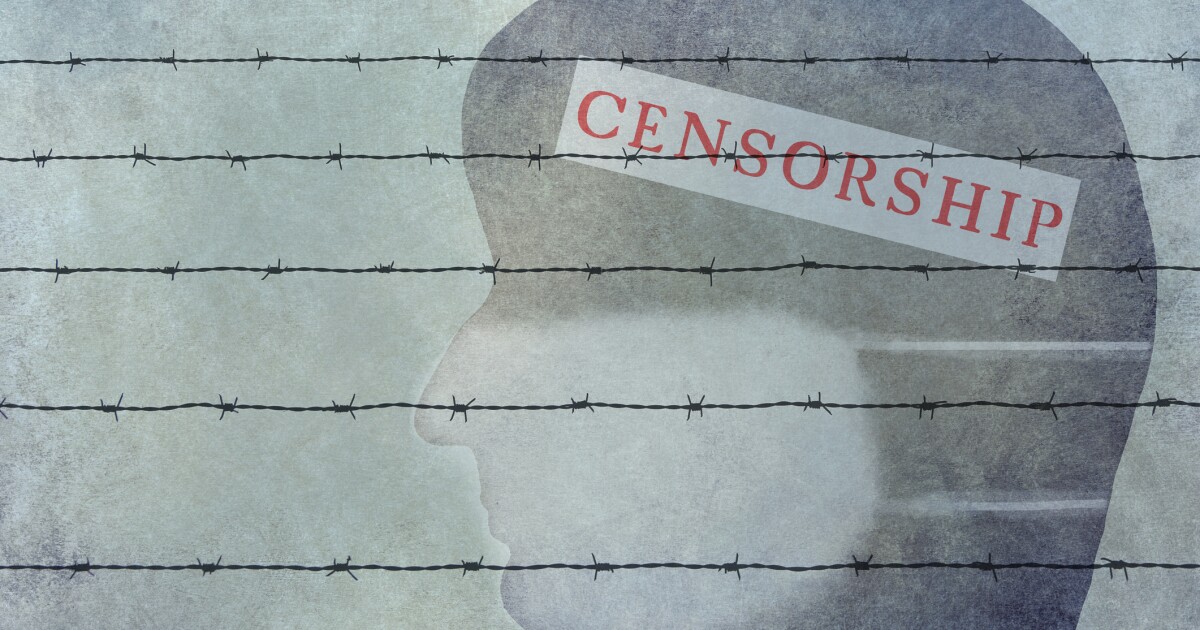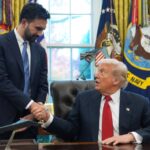

The proliferation of diversity, equity, and inclusion statements by universities across the country in faculty hiring is raising alarm bells among free speech advocates who say the practice is nothing short of an ideological litmus test.
A recent report from the Goldwater Institute found that 80% of job postings for Arizona’s public universities required applicants to submit a statement detailing their commitment to diversity, equity, and inclusion. The findings built on a 2021 report from the American Enterprise Institute that revealed at least 20% of faculty positions required a diversity statement, which the authors estimated was likely an undercount.
DESANTIS OUTLINES HIGHER EDUCATION REFORM PLAN AND CALLS FOR ABOLISHING DEI BUREAUCRACIES
Gabriel Nadales, the national director of Our America and a former antifa activist, told the Washington Examiner that such statements, while they are nominally intended to help achieve inclusion and diversity, often have the opposite effect.
“Not only do DEI statements create different standards according to students’ racial categories, which is gross on its own because it is the exact opposite of inclusiveness, but the statements also demand ideological conformity,” Nadales said. “Objections to DEI statements are often not just dismissed but punished. DEI statements stand in the way of true academia — the pursuit of truth.”
Proponents of DEI, meanwhile, say that they are necessary efforts to ensure that underrepresented groups, especially racial minorities, are given fair consideration and opportunities that have historically been unavailable to them.
The prevalence of diversity statements in faculty hiring was first spotlighted in 2018 by Heather Mac Donald, a fellow at the conservative Manhattan Institute, who noticed that several schools in the University of California system were requiring job applicants to submit such statements regardless of academic discipline.
But pinpointing exactly when and how DEI statements became so prevalent is a difficult task, said Jonathan Butcher, an education expert at the conservative Heritage Foundation.
Butcher, who contributed to the Goldwater Institute report, told the Washington Examiner that DEI statements are the latest expression of critical theory in the higher education ecosystem. The increasing prevalence of such statements, Butcher said, is a testament to what universities see as the goal of their institutions.
“There’s a disconnect between the goals and operations of universities, what the workforce needs, and what parents want their children to experience when they go [to] college,” Butcher said. “The institutions are thinking of ideological conformity, and whether they acknowledge it or not, they are creating an orthodoxy around ideas.”
He likened the ideological purity of DEI statements to a religious institution requiring a declaration of faith from its employees.
“You’re asking people to affirm that they are taking specific positions on the issues of ethnicity and the significance of race as it comes to what you expect for personal behavior,” Butcher said. “It is, in all of the wrong ways, altogether too familiar to the way that we think about religious life.”
Butcher pointed to the University of Pennsylvania as one of the most egregious examples of what universities expect from diversity statements. The school’s website provides a step-by-step guide on how to write an “effective” statement.
In addition to directing applicants to describe what diversity means to them, the how-to guide says an applicant’s “experiences working with diverse populations will themselves be diverse” and lists “service experience” with minorities and other groups as an example of information that should be included.
The growth of the so-called “DEI bureaucracy” was singled out by Gov. Ron DeSantis (R-FL) in a speech Tuesday in which he outlined a series of new legislative proposals that included abolishing all DEI departments in higher education.
“We are … going to eliminate all DEI and [critical race theory] bureaucracies in the state of Florida — no funding, and that will wither on the vine,” DeSantis, who is seen as a possible front-runner for the 2024 Republican presidential nomination, said. “That’s very important because it really serves as an ideological filter, a political filter. … People want to see true academics, and they want to get rid of some of the political window dressing.”
Likewise, in a campaign video last week, former President Donald Trump, who has already announced his third White House bid, vowed to crack down on “the costly, divisive, and unnecessary diversity, equity, and inclusion bureaucracy” if elected.
Echoing the potential 2024 GOP presidential rivals, Heritage’s Butcher sees multiple ways for the government to step in and abolish the DEI litmus tests.
CLICK HERE TO READ MORE FROM THE WASHINGTON EXAMINER
“Public institutions should not be allowed to use a DEI statement as a way of weeding an applicant out,” he said. “Public money should not be used to fund DEI offices, in public school districts or on college campuses.”
“There are two main reasons for that,” Butcher continued. “One is that the actions of these offices promote or contribute to racial discrimination. They contribute to discriminatory treatment in the form of affirmative action, in the form of bias response teams in the form of these DEI statements to hire employees. And then for two, hundreds of studies have looked at the effects on participants in these programs and find that it doesn’t change their behavior; it doesn’t change their attitudes. And in some cases, it can even create resentment through the course of DEI trainings.”






